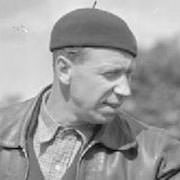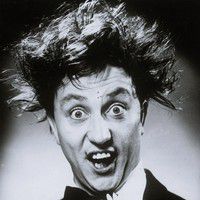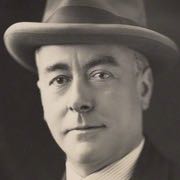Sir George Edward Wade, CBE (20 September 1869 – 29 November 1954), known professionally as George Robey, was an English comedian, singer and actor in musical theatre, who became known as one of the greatest music hall performers of the late 19th and early 20th centuries. As a comedian, he mixed everyday situations and observations with comic absurdity. Apart from his music hall acts, he was a popular Christmas pantomime performer in the English provinces, where he excelled in the dame roles. He scored notable successes in musical revues during and after the First World War, particularly with the song "If You Were the Only Girl (In the World)", which he performed with Violet Loraine in the revue The Bing Boys Are Here (1916). One of his best-known original characters in his six-decade long career was the Prime Minister of Mirth.
Born in London, Robey came from a middle-class family. After schooling in England and Germany, and a series of office jobs, he made his debut on the London stage, at the age of 21, as the straight man to a comic hypnotist. Robey soon developed his own act and appeared at the Oxford Music Hall in 1890, where he earned favourable notices singing "The Simple Pimple" and "He'll Get It Where He's Gone to Now". In 1892, he appeared in his first pantomime, Whittington Up-to-date in Brighton, which brought him to a wider audience. More provincial engagements followed in Manchester, Birmingham and Liverpool, and he became a mainstay of the popular Christmas pantomime scene.
Robey's music hall act matured in the first decade of the 1900s, and he undertook several foreign tours. He starred in the Royal Command Performance in 1912 and regularly entertained before aristocracy. He was an avid sportsman, playing cricket and football at a semi-professional level. During the First World War, in addition to his performances in revues, he raised money for many war charities and was appointed a CBE in 1919. From 1918, he created sketches based on his Prime Minister of Mirth character and used a costume he had designed in the 1890s as a basis for the character's attire. He made a successful transition from music hall to variety shows and starred in the revue Round in Fifty in 1922, which earned him still wider notice. With the exception of his performances in revue and pantomime, he appeared as his Prime Minister of Mirth character in all the other entertainment media including variety, music hall and radio.
In 1913 Robey made his film debut, but he had only modest success in the medium. He continued to perform in variety theatre in the inter-war years and, in 1932, starred in Helen!, his first straight theatre role. His appearance brought him to the attention of many influential directors, including Sydney Carroll, who signed him to appear on stage as Falstaff in Henry IV, Part 1 in 1935, a role that he later repeated in Laurence Olivier's 1944 film, Henry V. During the Second World War, Robey raised money for charities and promoted recruitment into the forces. By the 1950s, his health had deteriorated, and he entered into semi-retirement. He was knighted a few months before his death in 1954.







